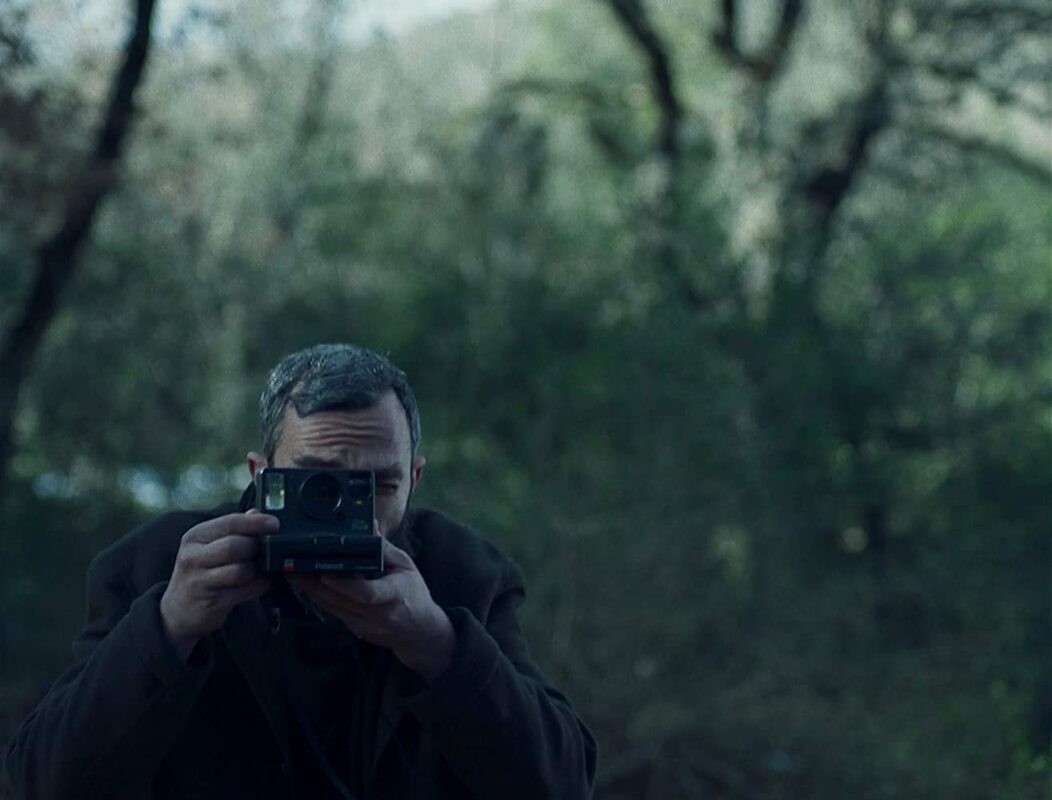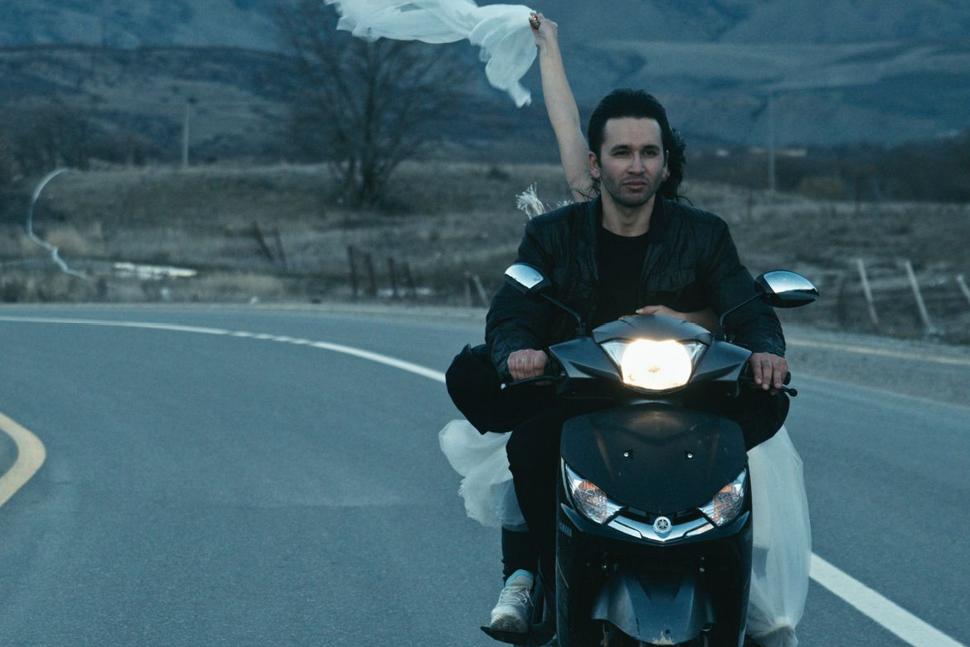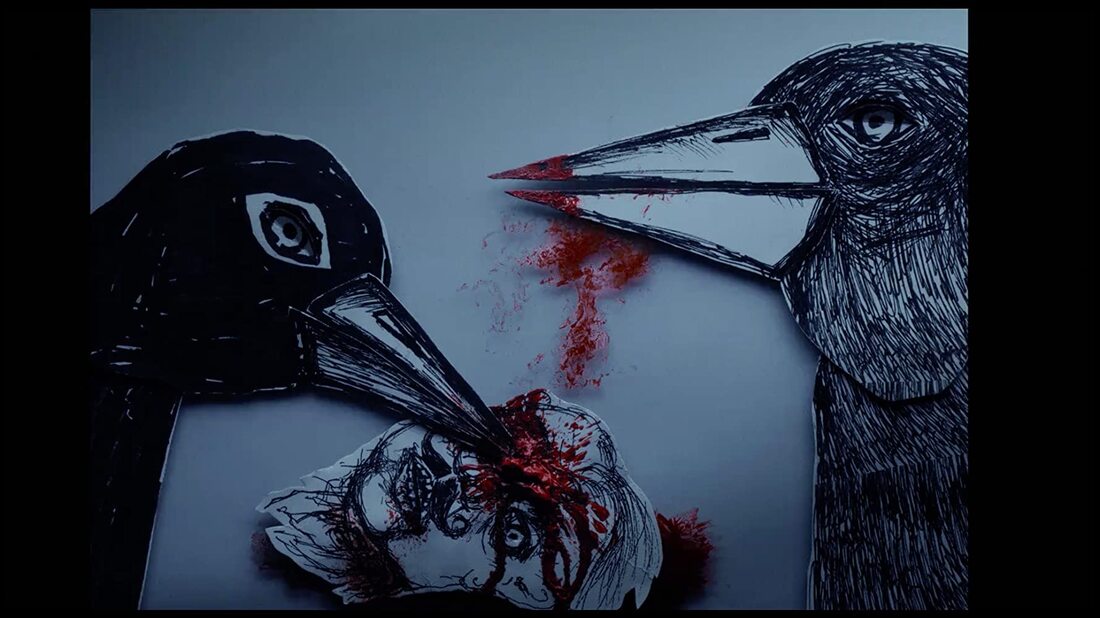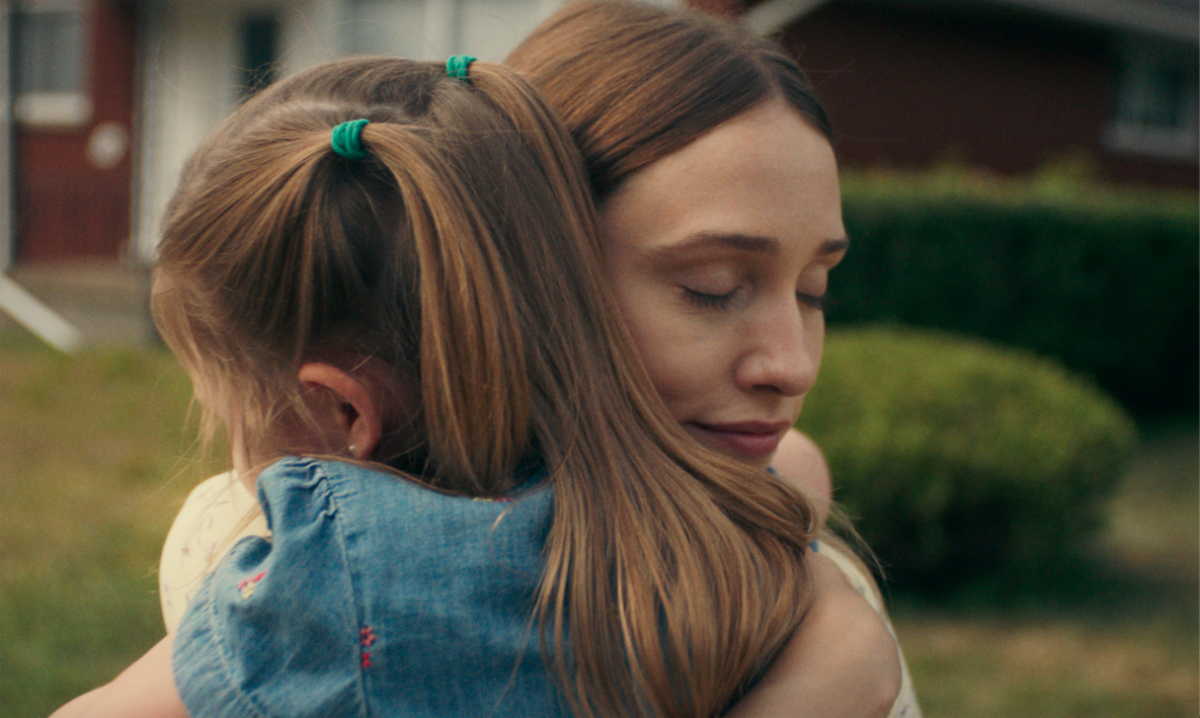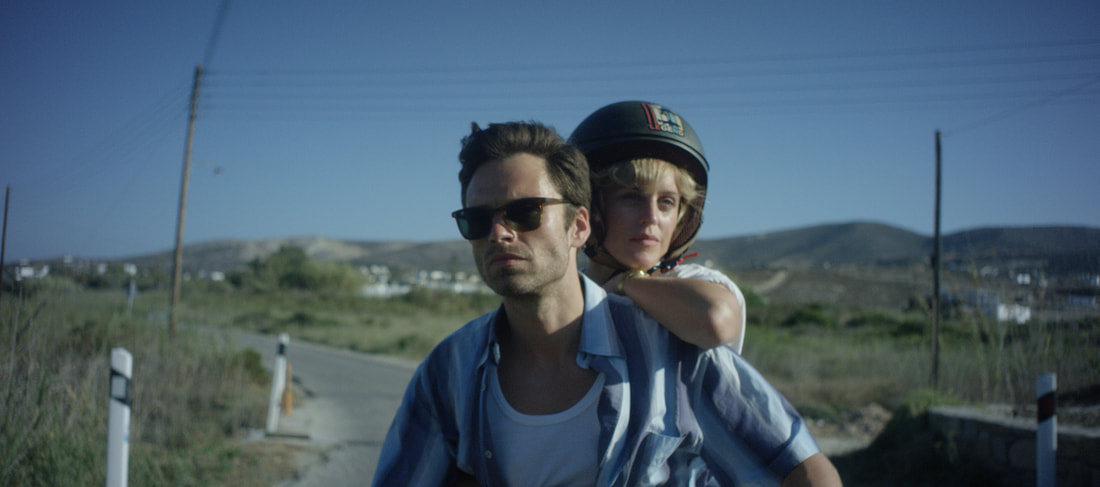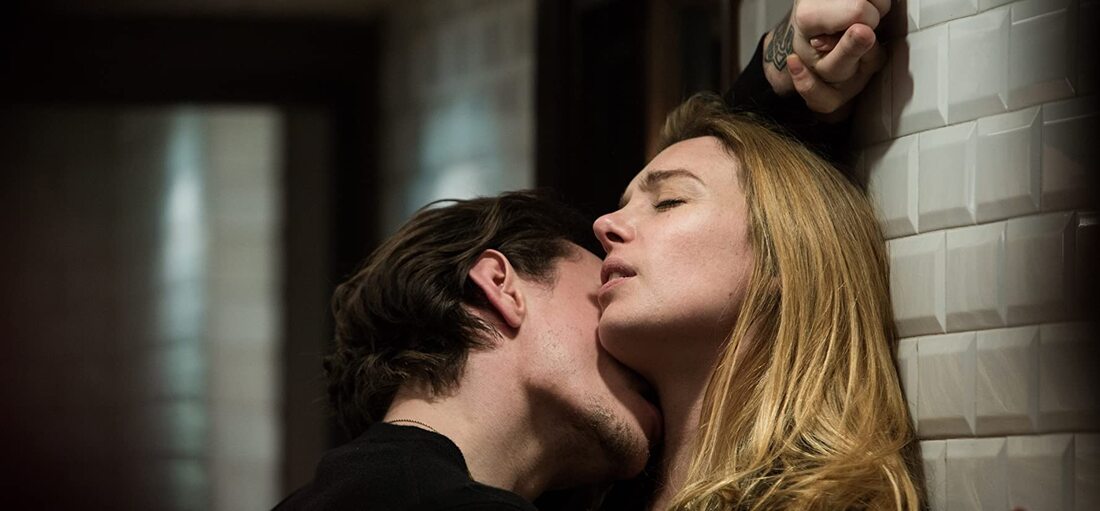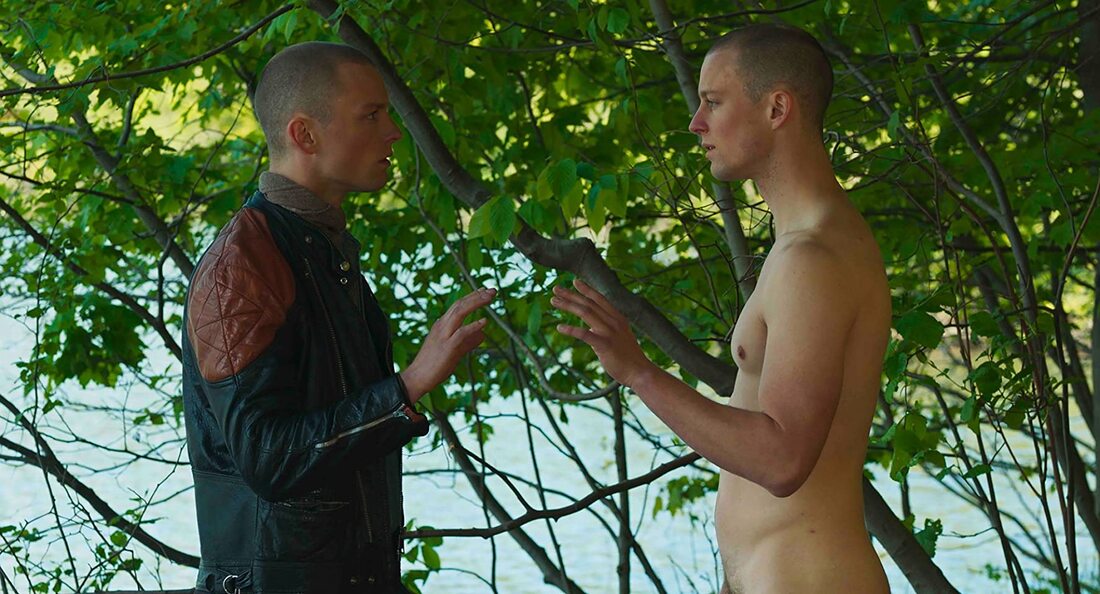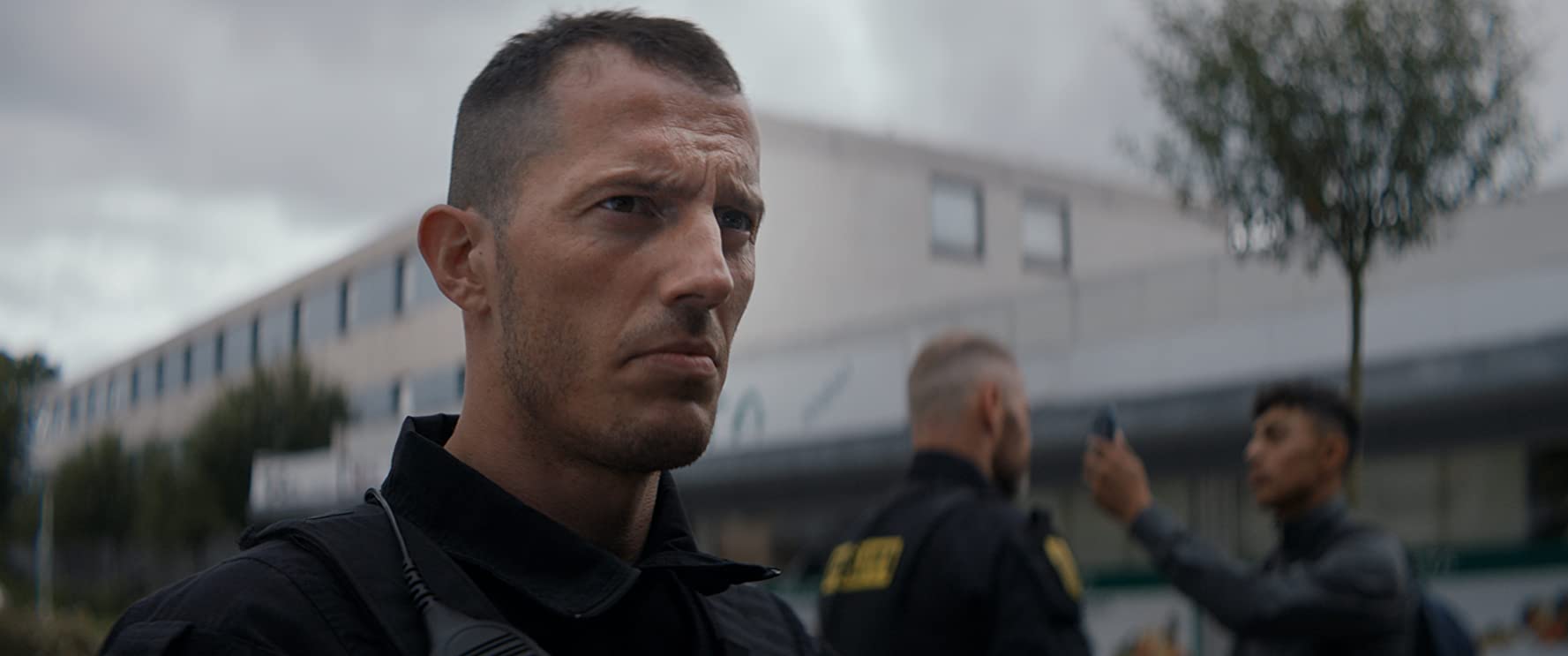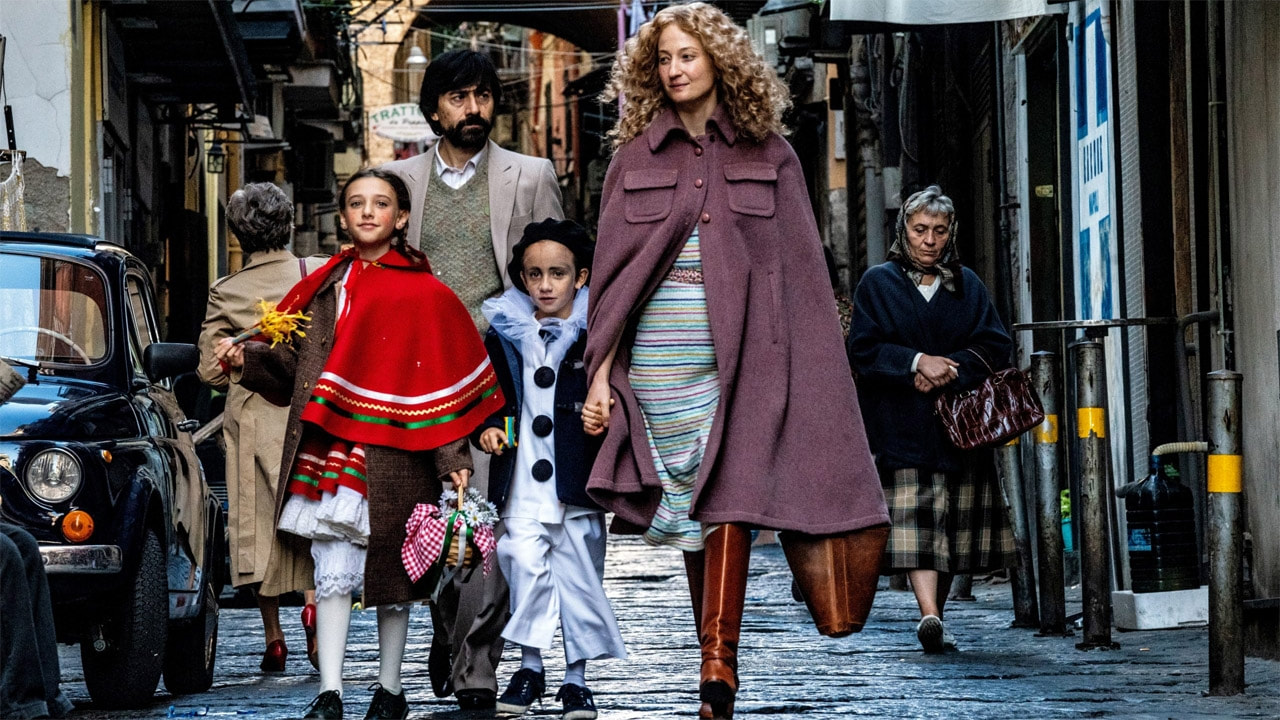|
By Sean Boelman
Because of the reduced number of films that the festival was able to screen due to the unique challenges faced for this year’s edition, the Toronto International Film Festival debuted a new Industry Selects sidebar. These films, still receiving the honor of being recognized by the festival outside of the Official Selection, screened for press and industry and the festival. The following are some of those films.
Apples
The feature debut of Greek writer-director Christos Nikou, who worked as the second assistant director on Yorgos Lanthimos’s Dogtooth, Apples is an unusual film that feels destined to find success on the art house circuit. Telling the story of a middle-aged man who falls victim to a pandemic that causes the sudden onset of amnesia, it may lack the dryly satirical edge that makes Lanthimos’s films so beloved, but it makes up for it in its existential musings on memory and identity. And lead actor Aris Servetalis gives a great performance, elevating the film from above average to legitimately memorable.
In Between Dying
Hilal Baydarov’s In Between Dying is a wandering movie in both a literal and a metaphorical sense. Following a young man searching for meaning in life, it definitely feels like there is a lot to dissect here, but the audience is never really given a reason as to why they should. Lacking either the narrative strength or the character development to justify its occasionally meditative rambling. It’s an absolutely gorgeous film to look at thanks to some beautiful scenery and great cinematography by Elshan Abbasov, but it works better as pleasant background noise than a compelling cinematic experience.
Kill It and Leave This Town
As an avant garde animated film, Mariusz Wilczynski’s fascinating Kill It and Leave This Town shows the tremendous potential that the medium has beyond the constraints of traditional storytelling. A surreal and often trippy voyage through the memories of the protagonist, it’s a very bizarre film that is likely to be a bit too much for most tastes. And while the animation style of the film isn’t what one would usually call attractive, as it is quite harsh and rudimentary in nature, it offers some uniquely nightmarish images. It very well may test some viewers’ patience, but it is absolutely worth the resolve.
Like a House on Fire
The relationship drama Like a House on Fire throws a very unique twist on a familiar story. About a young mother trying to reconnect with her estranged husband and their daughter, Jesse Noah Klein’s film feels intensely personal and hits much harder than expected. Of course, the film owes a lot to the powerful performances given by its two leads, Sarah Sutherland and Jared Abrahamson, but there is just a lot of empathy in Klein’s script. This is one of those films that is understandably very difficult to watch, but is rewarding nevertheless as a challenging, emotional experience.
Monday
Argyris Papadimitropoulos’s romance Monday obviously wants to be something more profound than it is, but it works just fine as a breezy summer romance. A snapshot of a relationship between two American expats living in Greece, the film is at its best when it lets its characters just have fun and struggles a bit when it tries to do something more substantial, almost crossing the line into melodrama. The chemistry between the two leads, Sebastian Stan and Denise Gough, is probably the single most important factor in selling this film’s emotion, but slick cinematography by Hristos Karamanis and a good score by Alexis Grapsas seal the deal.
My Best Part
The comedy-drama My Best Part, co-written, directed by, and starring Nicolas Maury, is probably one of the biggest disappointments to come out of this year’s market — not because it’s the worst, but because it showed the most potential. There are plenty of glimmers of greatness in this film about an actor who returns to his childhood home after his breaking point, but too often, the film comes across as annoying and out-of-touch. Despite a committed performance from Maury, the character is whiny and unlikable, and it’s a significant hurdle that the film is never able to overcome.
Passion Simple
Based on a bestselling book from the nineties, Danielle Arbid’s Passion Simple appears designed to have cashed in on the demand for mainstream erotica, but came a couple years too late. Tracking a relationship between a mother and a Russian diplomat, the film is watchable and has some solid cinematography and a great soundtrack, but it’s too low-brow for the art house and too cold for the horny crowd. As the title suggests, it’s a pretty simple film, with very little about it that isn’t straightforward. One just wishes that Arbid could have spared some more creativity for the steamy scenes.
Saint-Narcisse
The newest film from cult filmmaker Bruce La Bruce, Saint-Narcisse is the type of film that would have been in an expanded Midnight Madness lineup in a more normal year. A noir-tinged and darkly-comedic mystery about a man who sets out to better understand his past and makes some surprising discoveries along the way, it’s a weird and campy movie in many regards. And while the film’s occasionally extreme content and handling of taboo issues may put off some viewers, it will definitely catch the attention of those more daring fans of the festival circuit.
Shorta
Like an edgier version of last year’s Les Misérables, the police thriller Shorta serves as a much-needed contribution to the discussion of police brutality. And although audiences probably don’t want to see more movies about cops at the moment, this film about two police officers who get trapped when news gets out of a deadly shooting really dissects the ways in which the law enforcement system is fundamentally broken. Though the action and suspense is undeniably the focus of filmmakers Frederik Louis Hviid and Anders Ølholm, there is a lot beneath the surface here that makes it worth a watch.
The Ties
Having earned a lot of comparisons to last year’s Marriage Story because of their similar themes, Baumbach’s film and Daniele Luchetti’s The Ties differ quite a bit narratively. Exploring a marriage in crisis over several years as the parties attempt to stay together for the sake of their children, it’s an undeniably emotional watch. The segmented narrative, as would be expected, has some moments that are much stronger than others, but as a whole, the level of empathy with which the film treats its story and characters goes a long way in making it feel more resonant.
Tove
Well-made but disappointingly straightforward, Zaida Bergroth’s biopic Tove had the potential to be something really interesting but falls victim to a few too many cliches to be particularly memorable. Dramatizing the story of Tove Jansson, the artist and creator of the Moomins, the biggest issue of the film is Eeva Putro and Jarno Elonen’s script, which is simply too busy. By attempting to juggle too many storylines, the film ultimately falls flat when it could have been something more compelling had it been streamlined. Still, Alma Pöysti’s performance saves the film from landing in failed biopic obscurity.
Never Gonna Snow Again
Malgorzata Szumowska and Michal Englert’s film Never Gonna Snow Again is the only film of this group that was not a participant in thse Industry Selects sidebar, and rather just screened for press and industry via an online private screening via the festival’s platform, and interestingly enough, it may be the best of the bunch. An unabashedly weird and meditative film about a masseur who offers guidance to his much more wealthy clients, this is one of those multi-layered films that immediately demands multiple viewings. Its idiosyncratic nature makes its commercial prospects low, but when its audience finds it, it will undoubtedly be among their favorites of the year.
The 2020 Toronto International Film Festival ran from September 10-19.
0 Comments
Leave a Reply. |
The Snake HoleRetrospectives, opinion pieces, awards commentary, personal essays, and any other type of article that isn't a traditional review or interview. Archives
June 2024
Categories
All
|
|
|
disappointment media
Dedicated to unique and diverse perspectives on cinema! |

